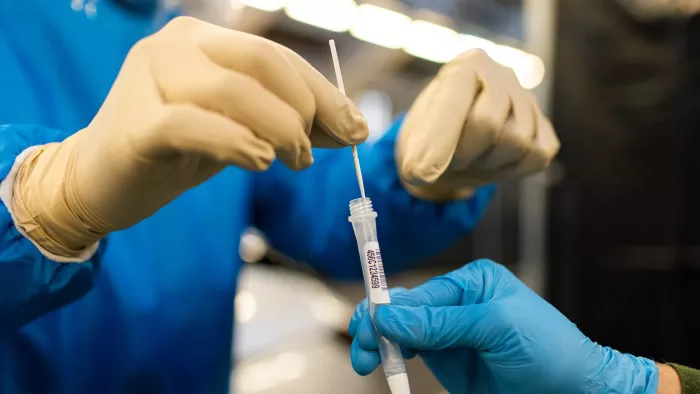Acne is one of the most common skin conditions worldwide, affecting people of all ages, especially teenagers and young adults. It manifests as pimples, blackheads, whiteheads, and cysts, primarily on the face, back, and shoulders. Acne can be frustrating and often leads to self-esteem issues, as it can affect one’s appearance. While acne is a common problem, the good news is that there are a variety of skin care products available to treat and manage acne. The key to managing acne is choosing the right products that suit your skin type and target the specific causes of acne, such as excess oil, clogged pores, and bacteria. In this article, we will explore some of the best skin care products for acne, how they work, and how to create an effective acne treatment routine.
Acne and Its Causes
Before diving into the best skin care products for acne, it is important to understand what causes acne and why certain products work better than others. Acne develops when the hair follicles on your skin become clogged with excess oil (sebum), dead skin cells, and sometimes bacteria. This clogging can create an environment where bacteria thrive, leading to inflammation and the formation of pimples, blackheads, and cysts. Several factors can contribute to acne, including hormonal changes, stress, genetics, diet, and the use of certain medications or cosmetics.
Hormonal changes, such as those that occur during puberty, menstruation, pregnancy, or the use of birth control, can trigger an increase in sebum production, making acne more likely. Stress can also exacerbate acne by increasing the production of cortisol, a hormone that stimulates oil production in the skin. Genetics play a significant role in acne susceptibility, as individuals with a family history of acne are more likely to develop the condition. Additionally, diet can influence acne, with certain foods like dairy and high-glycemic-index foods potentially contributing to breakouts in some individuals.
Understanding these causes can help you choose the most effective skin care products for treating acne, as products that target excess oil, clogged pores, and inflammation are often the best options.
Key Ingredients to Look for in Acne Skin Care Products
When selecting the best skin care products for acne, it’s important to choose products that contain specific ingredients known to combat the underlying causes of acne. These ingredients can help to reduce inflammation, control oil production, and promote skin healing. Below are some of the most effective ingredients for treating acne:
1. Salicylic Acid
Salicylic acid is one of the most common ingredients used in acne treatment products. It belongs to a class of ingredients called beta-hydroxy acids (BHAs). Salicylic acid works by exfoliating the skin and helping to unclog pores by dissolving the dead skin cells and excess oil that can lead to acne. It also has anti-inflammatory properties, which can help reduce the redness and swelling associated with pimples. Salicylic acid is typically found in cleansers, toners, spot treatments, and masks.
For those with oily or acne-prone skin, salicylic acid is a great choice, as it can penetrate deep into the pores and prevent new breakouts from forming. However, it can be drying, so it is essential to follow up with a good moisturizer to keep the skin hydrated.
2. Benzoyl Peroxide
Benzoyl peroxide is another highly effective ingredient for treating acne. It works by killing the bacteria that contribute to acne and reducing the amount of oil in the skin. Benzoyl peroxide also helps to clear existing pimples by reducing inflammation and promoting the turnover of skin cells. It is particularly effective for individuals with inflammatory acne, such as cysts or pustules.
Benzoyl peroxide is available in various strengths, typically ranging from 2.5% to 10%. Higher concentrations may be more effective, but they can also be more drying and irritating, so it is important to start with a lower concentration and gradually increase if necessary. Benzoyl peroxide can be found in cleansers, spot treatments, and gels.
3. Retinoids (Retinol)
Retinoids, including retinol, are powerful ingredients derived from vitamin A. Retinoids promote cell turnover, which helps to prevent the buildup of dead skin cells that can clog pores and lead to acne. They also reduce the appearance of existing acne scars and improve overall skin texture. Retinoids are particularly effective for treating comedonal acne, which involves blackheads and whiteheads.
Retinoids can be found in both over-the-counter and prescription formulations. While over-the-counter retinol is available in lower concentrations, prescription-strength retinoids such as tretinoin are stronger and may provide faster results. However, retinoids can cause dryness, irritation, and sensitivity, so it is important to start slowly and apply them only at night. Always use sunscreen during the day, as retinoids can make the skin more sensitive to UV rays.
4. Tea Tree Oil
Tea tree oil is a natural remedy that has been shown to have antibacterial and anti-inflammatory properties. It can help reduce the bacteria on the skin that contribute to acne breakouts and soothe inflammation. Tea tree oil is often used as an alternative to benzoyl peroxide for those with sensitive skin or those who prefer natural remedies.
While tea tree oil can be effective, it should always be used with caution. It is potent and should be diluted before applying it to the skin. Using it in concentrations of 5% or lower is typically considered safe. Tea tree oil can be found in various products such as spot treatments, cleansers, and face masks.
5. Alpha Hydroxy Acids (AHAs)
Alpha hydroxy acids, such as glycolic acid and lactic acid, are exfoliants that help to remove dead skin cells from the surface of the skin. AHAs can be particularly helpful for those with acne-prone skin because they help to prevent clogged pores by sloughing off the top layer of skin. Additionally, AHAs can improve skin texture and reduce the appearance of acne scars and hyperpigmentation.
AHAs are often found in chemical exfoliants, toners, and masks. Like salicylic acid, AHAs can make the skin more sensitive to the sun, so it is essential to wear sunscreen when using AHA-containing products.
6. Niacinamide
Niacinamide, also known as vitamin B3, is a gentle yet effective ingredient for acne-prone skin. It has anti-inflammatory properties that can help reduce redness and swelling associated with acne. Niacinamide also helps regulate sebum production, making it a great option for those with oily skin. Additionally, niacinamide has been shown to improve the skin barrier, reduce the appearance of pores, and promote even skin tone.
Niacinamide is found in a variety of acne treatment products, including serums, moisturizers, and toners. It is suitable for all skin types, including sensitive skin, and can be used in combination with other acne treatments.
Best Skin Care Products for Acne
Now that we’ve covered the key ingredients to look for in acne products, let’s explore some of the best skin care products for acne. These products are known for their effectiveness in treating and managing acne while keeping the skin healthy and balanced.
1. Cleansers
A good cleanser is essential for an acne skin care routine. Look for a cleanser that is gentle, non-comedogenic (won’t clog pores), and contains acne-fighting ingredients like salicylic acid or benzoyl peroxide. One highly recommended option is the CeraVe Foaming Facial Cleanser, which contains ceramides, niacinamide, and hyaluronic acid to help restore the skin’s barrier while cleansing.
For those with sensitive skin, the Neutrogena Oil-Free Acne Wash is a great option. It contains salicylic acid and is formulated to cleanse the skin without over-drying it. This cleanser helps to remove excess oil and prevent breakouts.
2. Spot Treatments
Spot treatments are a great way to target specific breakouts. One of the best spot treatments on the market is the Clean & Clear Advantage Acne Spot Treatment. It contains 2% salicylic acid and works quickly to reduce the size and redness of pimples.
For a natural alternative, the The Body Shop Tea Tree Oil is an excellent option. It can be applied directly to individual pimples and has antibacterial properties to help treat acne without harsh chemicals.
3. Serums
Serums are lightweight, fast-absorbing products that can deliver potent ingredients deep into the skin. One of the top serums for acne is the The Ordinary Niacinamide 10% + Zinc 1%. This serum contains niacinamide to reduce inflammation and zinc to regulate oil production, making it ideal for oily, acne-prone skin.
Another excellent serum is the Paula’s Choice Resist 10% Niacinamide Booster, which targets enlarged pores and uneven skin tone while soothing and calming the skin.
4. Moisturizers
Even if you have acne-prone skin, it is essential to use a moisturizer. Look for a lightweight, oil-free moisturizer that won’t clog pores. The Neutrogena Hydro Boost Water Gel is an excellent choice for oily skin, as it provides hydration without feeling greasy. It contains hyaluronic acid to keep the skin moisturized and balanced.
For more sensitive skin, the CeraVe PM Facial Moisturizing Lotion is a great option. It contains niacinamide and ceramides, which help to repair and soothe the skin while keeping it hydrated throughout the night.
5. Masks
Face masks can provide an extra layer of treatment for acne. The Aztec Secret Indian Healing Clay is a popular choice, as it draws out impurities from the skin and helps to reduce acne-causing bacteria. This mask contains bentonite clay, which helps to absorb excess oil and tighten pores.
Another great option is the Origins Out of Trouble 10-Minute Mask, which contains salicylic acid and zinc to help reduce breakouts and calm the skin. This mask is ideal for oily or acne-prone skin and can be used once or twice a week for optimal results.
Conclusion
Acne can be a persistent and frustrating condition, but with the right skin care products, it can be effectively managed. The best skin care routine for acne includes gentle cleansing, targeted treatment for breakouts, and the use of products containing proven acne-fighting ingredients such as salicylic acid, benzoyl peroxide, retinoids, and niacinamide. Consistency is key when treating acne, so it’s important to stick with a routine and give the products time to work. With the right products, you can reduce the appearance of acne, prevent future breakouts, and achieve clearer, healthier skin.
Related Topics






























